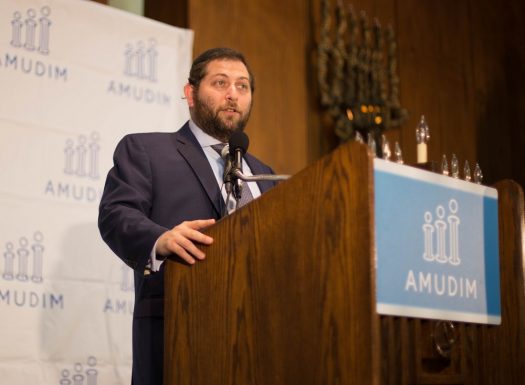
Op-Ed: Giving Thanks
by Zvi Gluck
Depending on who you ask, Thanksgiving can mean a lot of different things to a lot of different people. While historically Thanksgiving marks the first harvest feast shared by the colonial pilgrims and Virginia’s Wampanoag tribe, after 400 years, that particular aspect of the holiday has pretty much gotten lost in the shuffle. As a non-working day for many, Thanksgiving has strayed somewhat from its origins and become synonymous with other things, like family time, the Macy’s parade, pro-football games and the kick off of countless Black Friday sales. But whether you mark the day with a turkey and all the trimmings or not, there is no getting around the fact that the final Thursday in November is a national holiday built on a foundation of appreciation.
Gratitude isn’t always easy to muster for the many who face considerable difficulties in their day to day lives. COVID re-entry has been a trying experience and acclimating to a new normal has presented challenges that are both unique and daunting. We see those realities reflected at Amudim, where our year-to-date case volume increased 28 percent over last year, with calls coming from pandemic-scarred individuals as well as from people who should have sought treatment years ago but haven’t felt comfortable reaching out for help until now.
Even as it has become clear that we have yet to flatten the curve of our ongoing mental health crisis, it is important to understand that that upward trajectory stems from the fact that we are living in a time where people are no longer afraid to reach out for help. It is incredibly gratifying to see how people are taking positive steps to better their lives, that stigmas have been shattered and our communities are coming to understand that mental health challenges are real.
Taken from that perspective, its rising demand for mental health services is actually an encouraging phenomenon and in addition to the gratitude component inherent in its name, Thanksgiving is also a reminder of our ongoing obligation to help others. In 2012, we saw people rushing to help Hurricane Sandy victims with their physical needs, but by the time the storm’s mental health component emerged months later, there were few who stepped up to answer the call. It is crucial that we take steps to ensure that that pattern doesn’t repeat itself now post-COVID, particularly given the pandemic’s global impact, with so many more people in need of assistance.
As you enjoy your Thanksgiving in whatever way most resonates with you, invite someone who might be going through a tough time over to watch the Raiders and the Cowboys duke it out in Dallas or ask them to join you for whatever kind of dinner you happen to be serving. Send a care package to a person who lives alone or pick up the phone and call them to say hello and ask them how their day is going. Be that ray of sunshine in someone else’s life and encourage others to understand that issues like depression and anxiety are real and can’t just be wished away.
We are living in a time when there are so many who are hurting. This year, as you celebrate Thanksgiving, I ask you to be both thankful and a giver. I promise you, you’ll be glad you did.
Zvi Gluck is the CEO of Amudim, an organization dedicated to helping abuse victims and those suffering with addiction within the Jewish community and has been heavily involved in crisis intervention and management for the past 22 years. For more information go to www.amudim.org.









